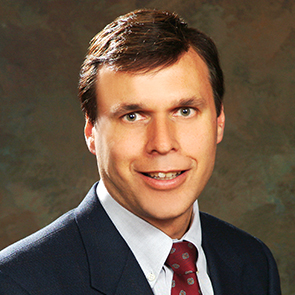
Neil Nedley, MD
Healing Power of the Sabbath
Nedley Health recently held a Depression and Anxiety Recovery Program on the campus of Weimar Institute.
Cyndi’s Story
One participant was an atheist who had struggled with alcoholism for years. Cyndi* had tried numerous programs; three years prior, she attended AA but walked out, saying, “This is not working. If you would leave God and the Higher Power out, you’d be able to help a lot more people.”
Cyndi is an intelligent and successful businesswoman. One of her clients recommended the residential Nedley Depression & Anxiety Recovery Program. This client actually made the first call from Cyndi’s office, to Sarah, the program screener for Nedley Health. During the interview, Cyndi learned that the program is Christian-based. Frustrated with her years of problem drinking and having examined the statistics of the Depression & Anxiety Recovery Program, she thought, “Maybe there is something to this. If it requires Christian principles, then I need to be willing to do it.”
Because alcoholism is hard to deal with, it usually requires months in a treatment center. As Cyndi researched other programs, she discovered that our residential program is by far the least expensive and most successful program for overcoming addictions, such as alcoholism. She found that many centers charge around $45,000. Even then, the chance of long-term success is only about 50 percent. Cyndi realized that the Nedley program was likely to be more successful because it would actually address the issues behind alcoholism and why she was drinking. So she decided to come.
In the Program
 Once here, Cyndi went through medical and mental health evaluations. We found brain chemistry imbalances that could be corrected to improve her mental health. She learned how the ten cognitive distortions impact addictions. Toward the end of the program, she learned how the principles behind the Ten Commandments solve those ten different problems with distorted thinking. If we obey them, these principles can help us become healthier and live a more vibrant life.
Once here, Cyndi went through medical and mental health evaluations. We found brain chemistry imbalances that could be corrected to improve her mental health. She learned how the ten cognitive distortions impact addictions. Toward the end of the program, she learned how the principles behind the Ten Commandments solve those ten different problems with distorted thinking. If we obey them, these principles can help us become healthier and live a more vibrant life.
During an evening session, I went over the first four commandments. When we read the fourth commandment, “Remember the Sabbath day to keep it holy” I asked participants to name the principle behind this commandment. They chose the words “holy,” “being set apart,” and so forth. We then examined which cognitive distortion this commandment solves, and we also dove into the scientific analysis of keeping a day holy.
A Study on the Sabbath and Mental Health
As a part of this presentation, we examined a recent study comparing Sabbath keepers with those who do not keep the seventh-day Sabbath. The study is based on the question, “Could the Sabbath keeping experience of Adventism actually help them be healthier, in addition to their diet and exercise?” In order to find out, Sabbath keeping was defined. This included not shopping, not reading secular material, not watching or listening to news or sports programs, not attending secular concerts or theatrical events, not working, and not engaging in commercial activities from Friday night to Sabbath night. In addition, what people were doing on Sabbath was considered, like going to church, spending time with family and friends, and enjoying nature – all undisturbed by the stresses of everyday life and work.
Statistical analysis showed a significant co-relation between Sabbath keeping and mental health. The conclusion was that “Greater Sabbath keeping was associated with more religious coping, more religious support, healthier diet, and more exercise, which in turn were associated with better mental health.”
During the study, the participants learned about the importance of diet and exercise for mental health. Interestingly, religious coping and religious support had significantly greater effect upon mental health than did diet or exercise. We know that diet and exercise are both crucial in regard to mental health, but in this study there was something even more important – and that was Sabbath keeping.
Of course, both Sabbath keepers and non-Sabbath keepers have bad things happen to them. Sabbath keepers can lose their jobs, be fired, face divorce, or a myriad of other challenges. The key is, Sabbath keepers seem to have more coping mechanisms and therefore are better equipped to live above the fray. Whether it’s because Sabbath keepers take time to develop a closer relationship with Christ, have a stronger support system of believers in the church, or simply have time to reflect and destress, it seems that bad things don’t get them down as significantly or cause them to crash or to start thinking of the most terrible options imaginable in order to cope.
At the program we teach our recovering participants evidence-based, scientific interventions that can help their mental health. We also want to model everything that will help them emotionally, including Sabbath observance. On Friday we explained that the next day we will go to church, avoid non-Sabbath activities as demonstrated in the study, and be involved in spiritual activities. On Sabbath we took the group to church and participated in communal Sabbath activities afterward.
I didn’t mention the Bible or tradition during the evening meeting that Cyndi attended. There were Sunday worshippers (not to be confused with Sunday keepers), an atheist, and people from all different walks of life. Interestingly, after that message, Cyndi raised her hand in front of everybody and said, “I’m reading this commandment and it says the seventh day. Why is it that many Christians – most of them, in fact – worship on the first day? How did that start?”
I started out by mentioning that we love Christians of all types, no matter their beliefs or what day they worship. Then I explained a bit of the history with Rome and human tradition, in contrast to the Word of God. Then I emphasized that we want to embrace all the principles of abundant living that Christ has given us and I believe Sabbath keeping is one of those.
Sabbath As A Health Principle
Let’s briefly go back to the scientific study. The study concludes that it’s not just Sabbath keeping that provides mental health benefits. It’s also the reason why we keep the Sabbath that is important too; that is, the motives. If the motive is social pressure, duty, or shame avoidance, Sabbath keeping doesn’t help. But when test subjects refrained from activities that the commandment forbids and actually performed activities that lead to a better understanding of God’s principles, which draw us closer to God and other believers, it was a great determinant in regard to positive mental health.
Jesus Himself, when He was here on earth, said, “The Sabbath was made for man.” We often miss the fact that the Sabbath is a health principle. It is something the Lord gave us to enhance our health. In addition, if we’re keeping the Sabbath, we’re actually more likely to incorporate other health principles into our lives too.
So when people know about the Sabbath but they don’t keep it, what’s the issue? It’s actually a cognitive distortion called “disqualifying the positive.” They may think, “If I do what I want to do on the Sabbath, I’m going to be happier. I don’t want to follow this requirement that doesn’t allow me to do things I want to do. I think God wants me to be happy, so I’m sure He doesn’t mind if I just do what I want to do.” But God is saying, “Trust Me! I made you. I designed you. I know what’s best for you.”
Those who experience keeping the Sabbath commandment live happier lives. They are mentally and emotionally more healthy.
Medical Missionary Work
The next morning, Cyndi could not let it go. While on a hike, she kept saying things to the others like, “If we’re going to follow the only portion of Scripture that God wrote Himself, why wouldn’t we keep the seventh-day Sabbath?” Cyndi had been convicted and that very morning she made a commitment that she was going to follow God in all aspects of her life. Here was a woman who started the program just days before as an atheist, and she was now making a commitment to go all the way with Jesus – to put all on the altar of sacrifice and let God into her life. That is the essence of medical missionary work!
In Cyndi’s story we see a marvelous example of the importance of medical missionary work. Cyndi never would have gone to an evangelistic series or traditional church meeting. But because of a health need, the gospel was able to make a huge difference in her life. Her heart and mind were opened. That Sabbath afternoon, at the end of the program, she asked to be baptized! Of course we reinforced her decision while encouraging her to study further. Cyndi is determined to take the step of baptism once she fully understands what her commitment means.
Medical missionary work and the gospel combined are a powerful influence. I believe when combined, the gospel will encircle this globe quickly. If we just reach one soul every week, and that soul reaches another soul every week, over eight billion people will be reached within three and a half years. Ellen White predicted, “We shall see the medical missionary work broadening and deepening at every point of its progress because of the inflowing of hundreds and thousands of streams until the whole earth is covered as the waters cover the sea.” – A Call to Medical Evangelism and Health Education p. 13
We’re not to this point yet. This is why comprehensive health programs such as Depression & Anxiety Recovery exist. This is why Weimar Institute exists. This is why AMEN exists. The Three Angels’ Messages are intimately connected with the health message. My prayer is that we, as health professionals, will fully embrace all three of Christ’s ministry methods – teaching, healing, and presenting the gospel – and use His methods to bring about the loud cry that will circle the globe.
i Superville, D. J., Pargament, K. I., & Lee, J. W. 2013. Sabbath keeping and its relationships to health and well-being: A mediational analysis. International Journal for the Psychology of Religion.
*Pseudonym
<< | Table of Contents | >>
